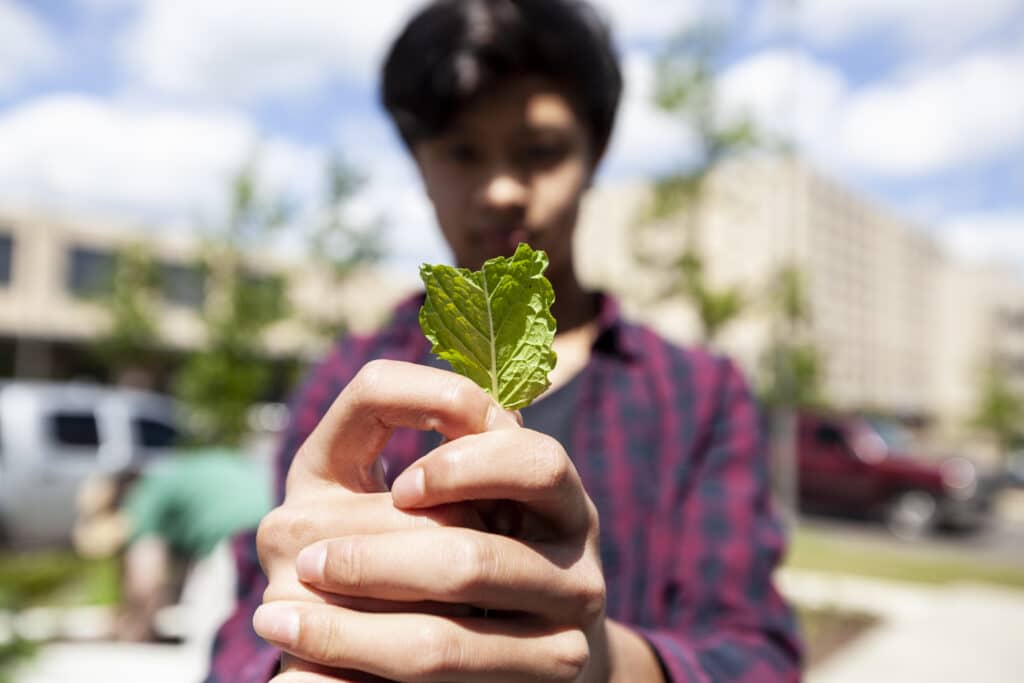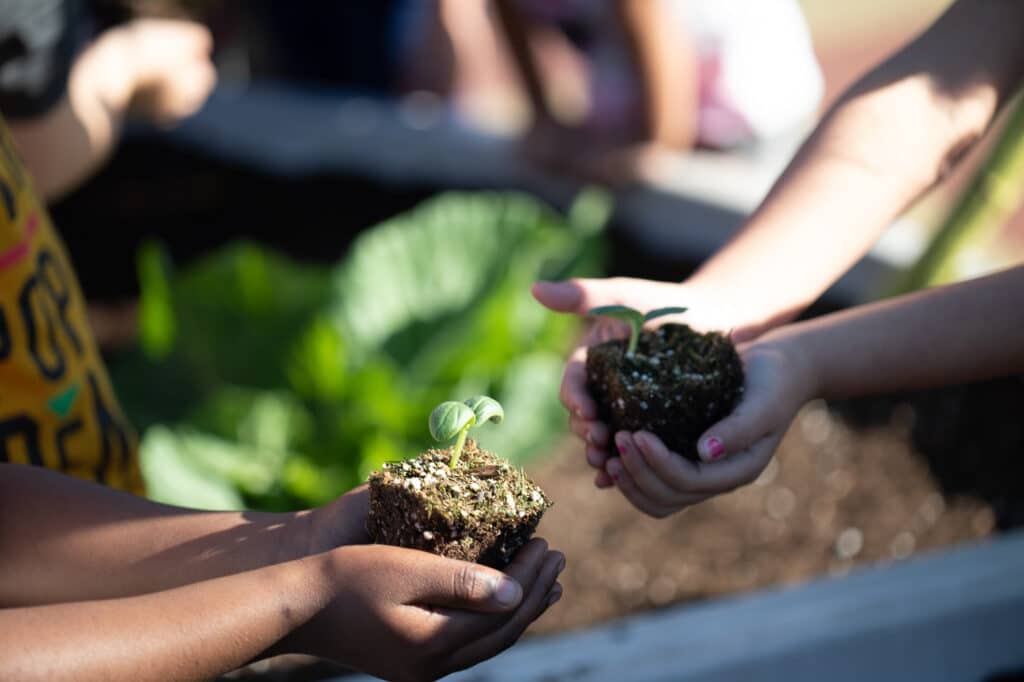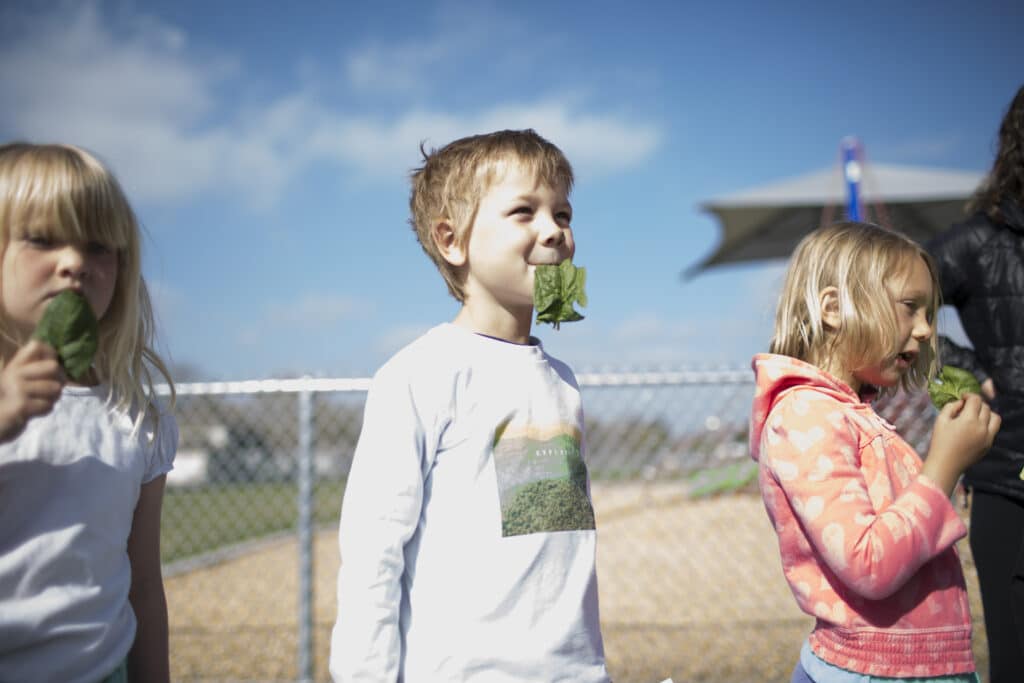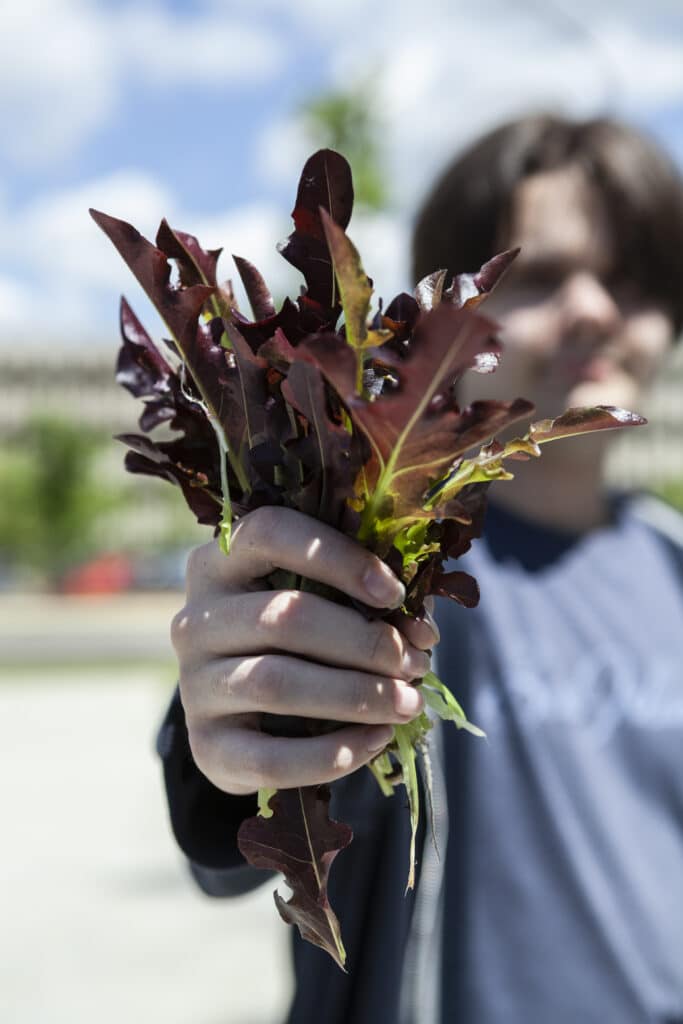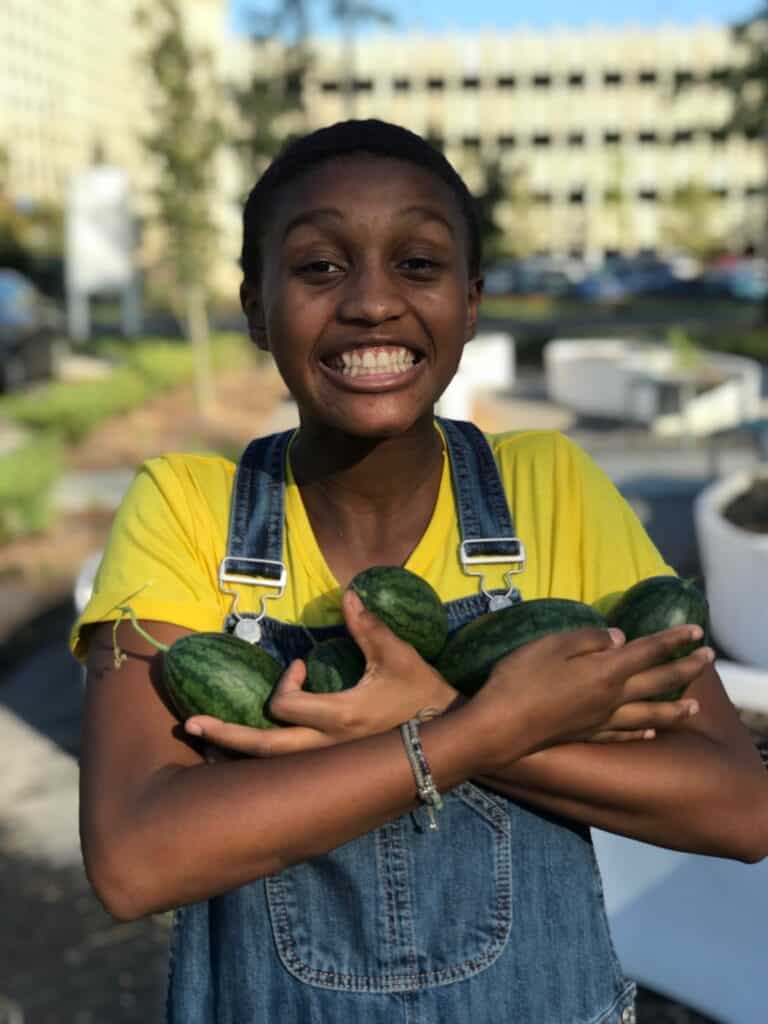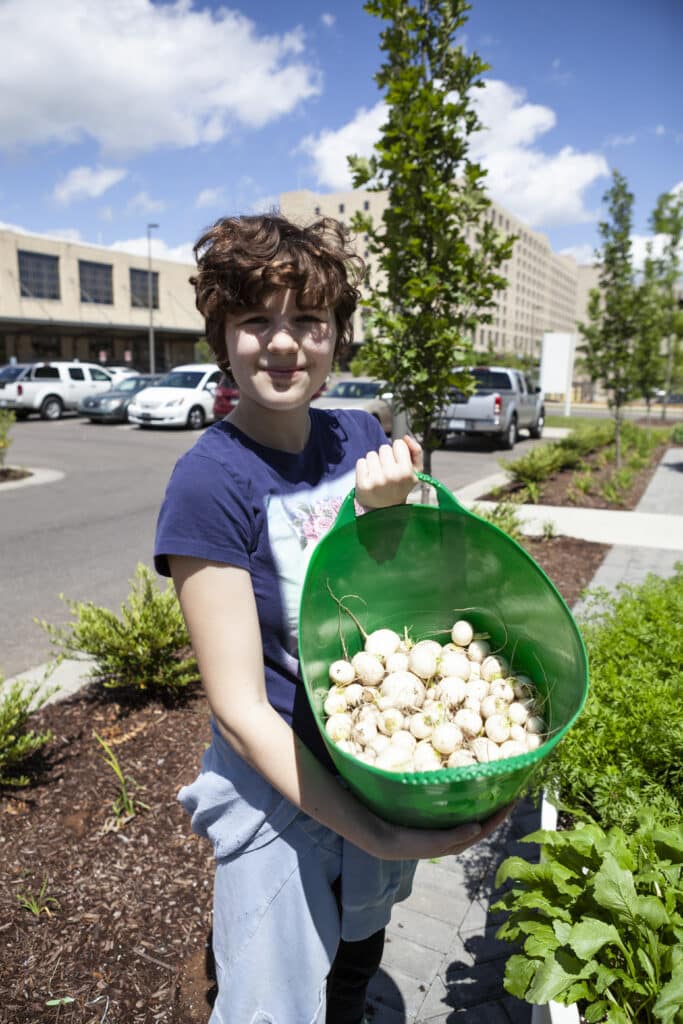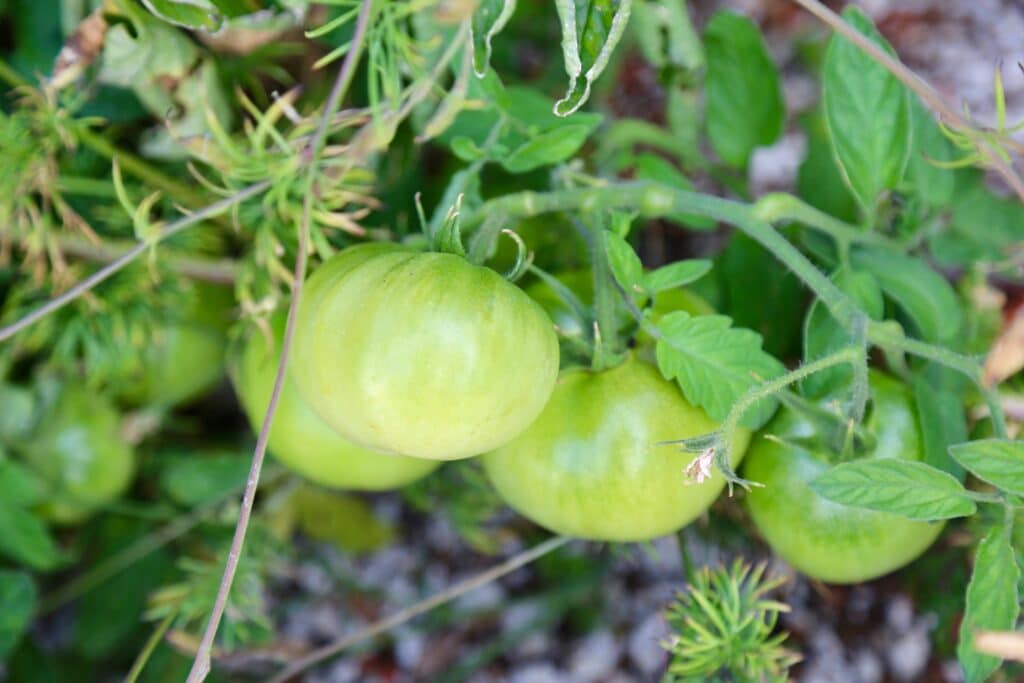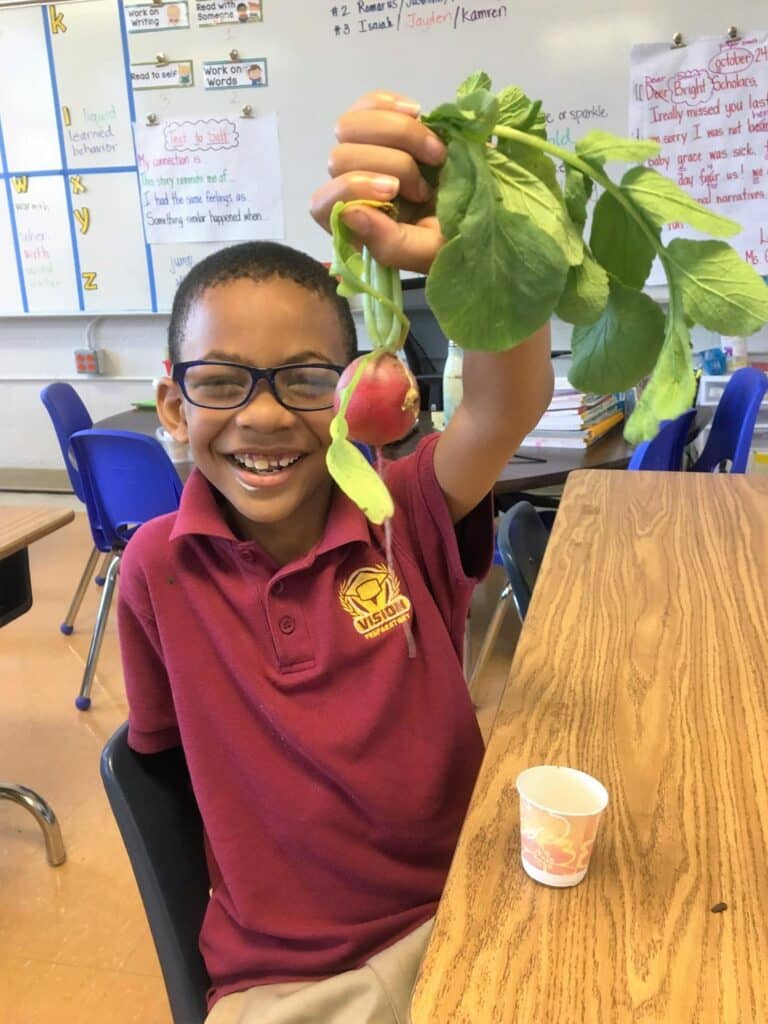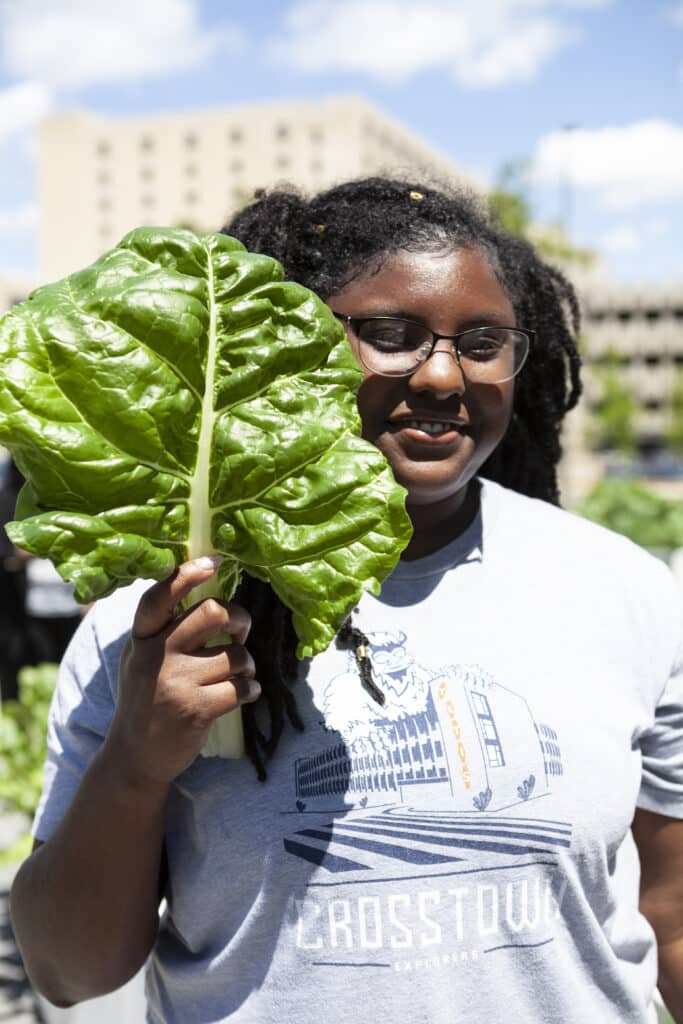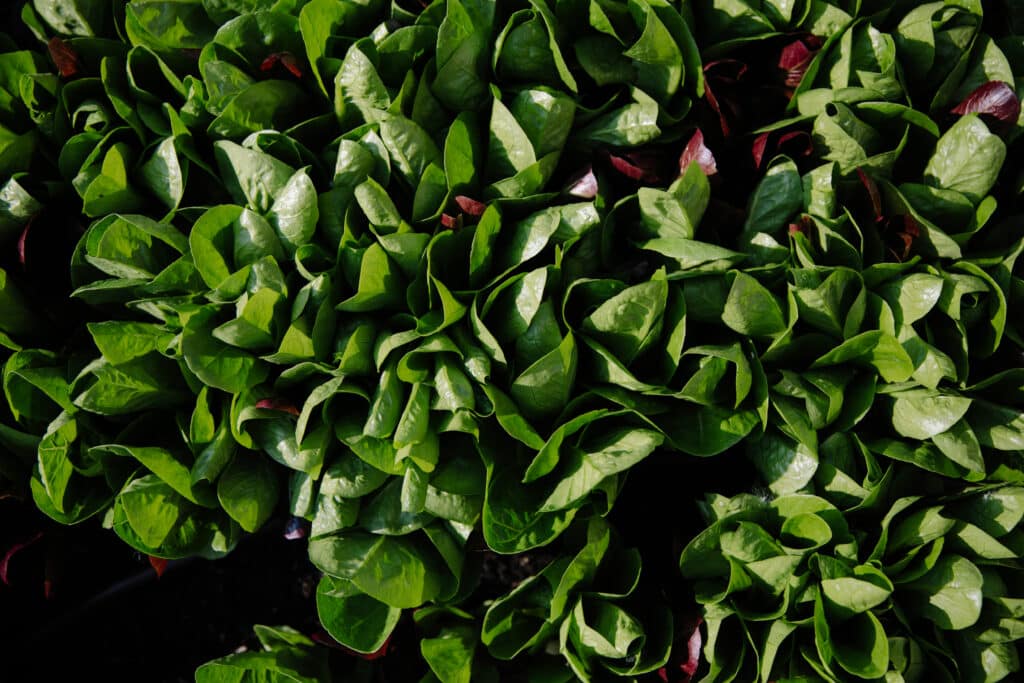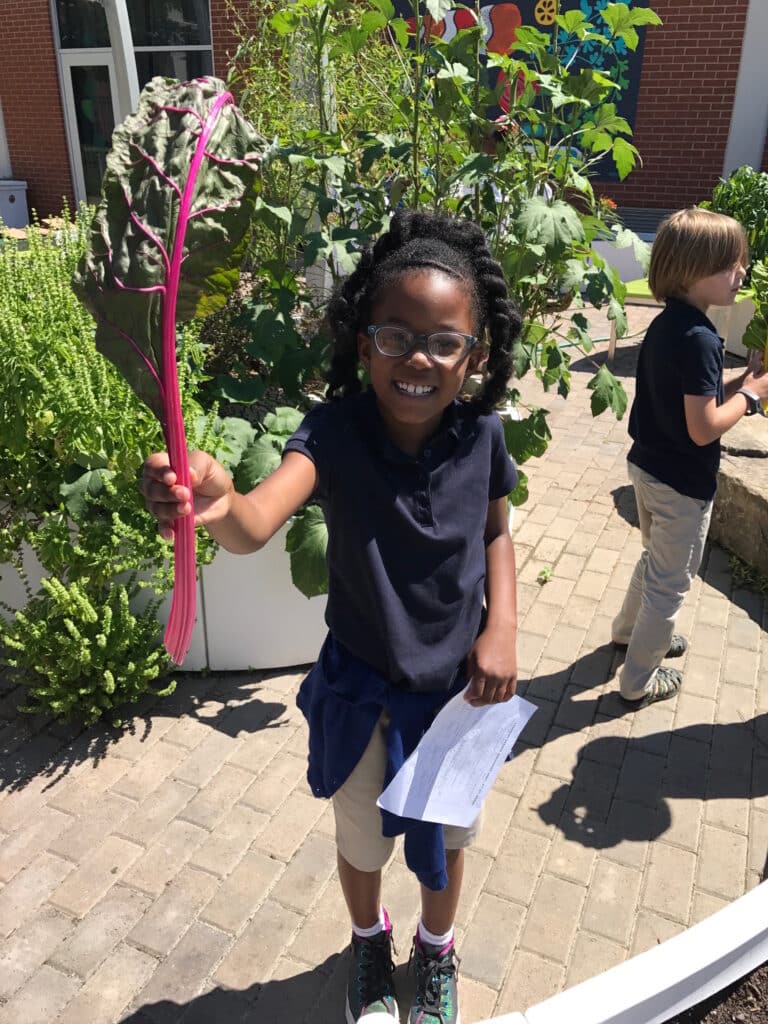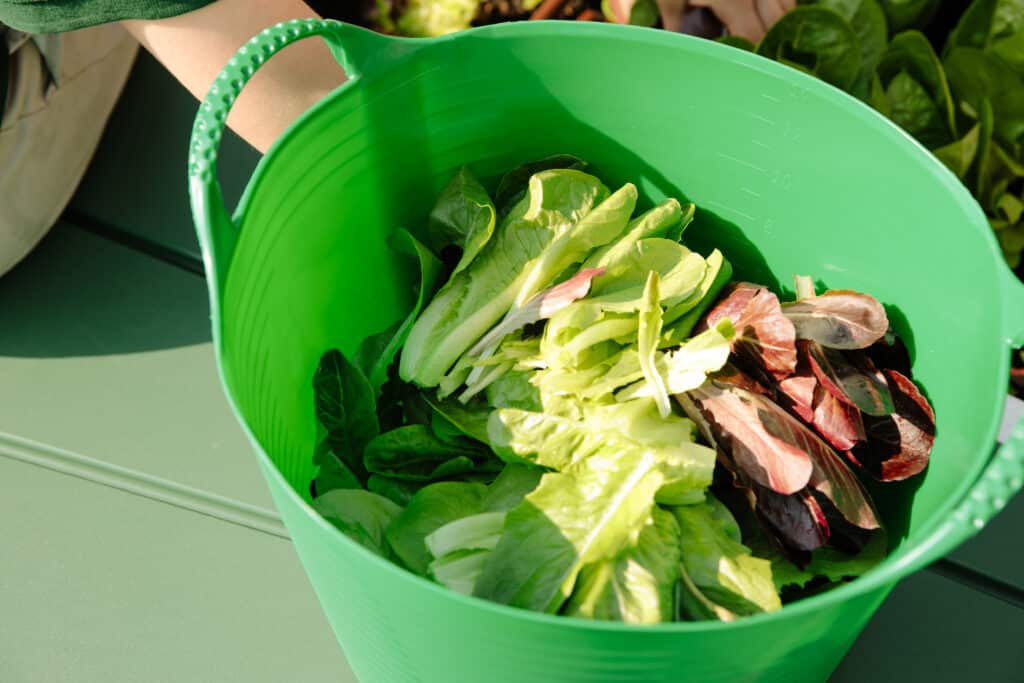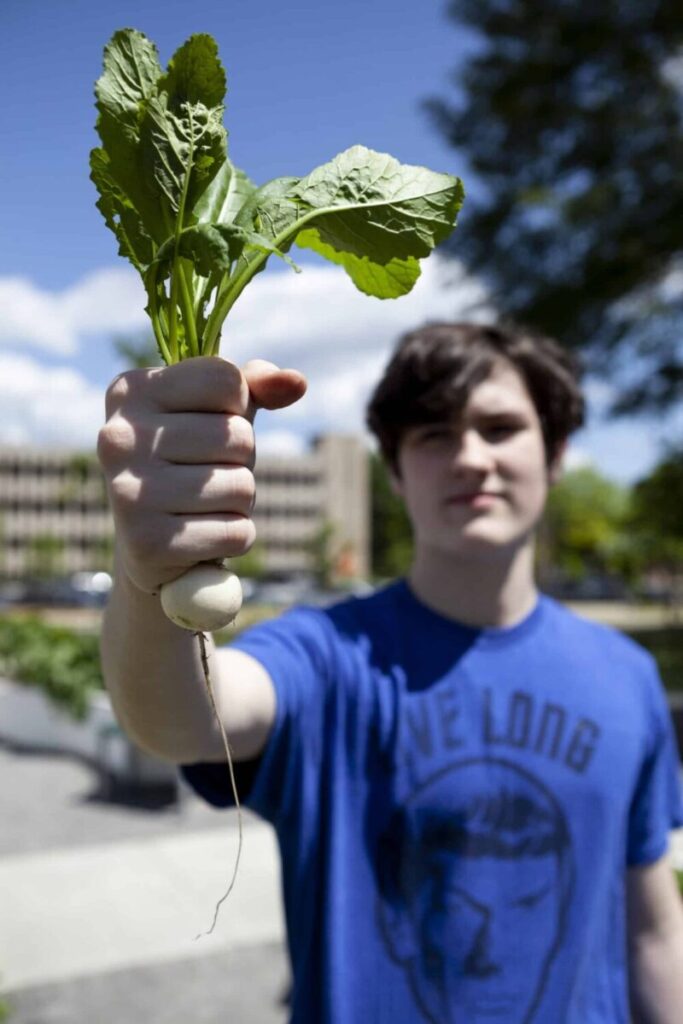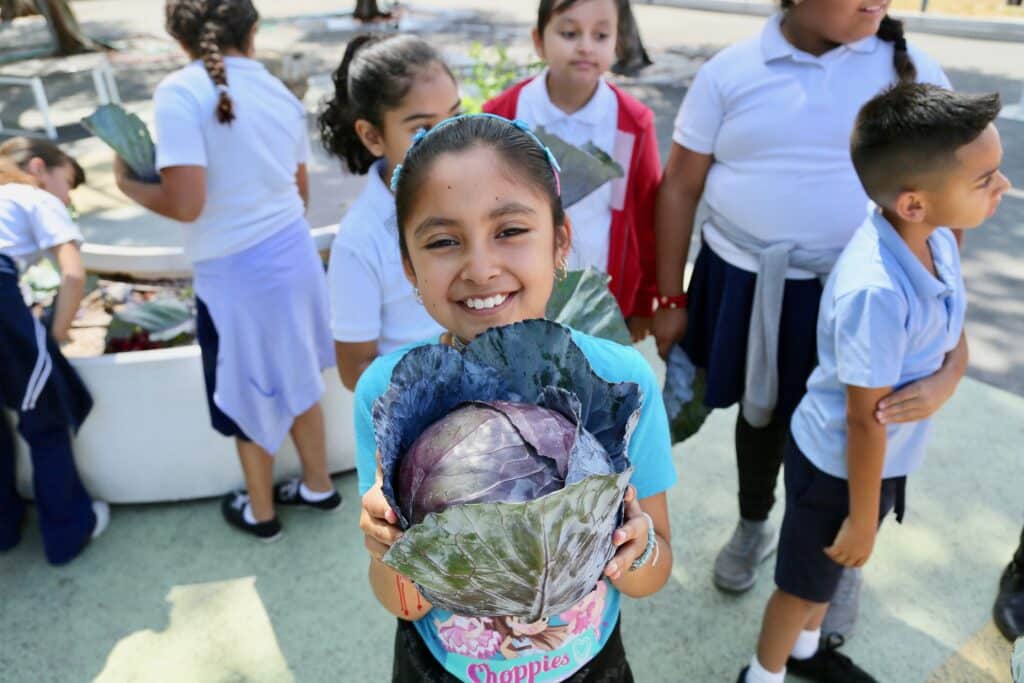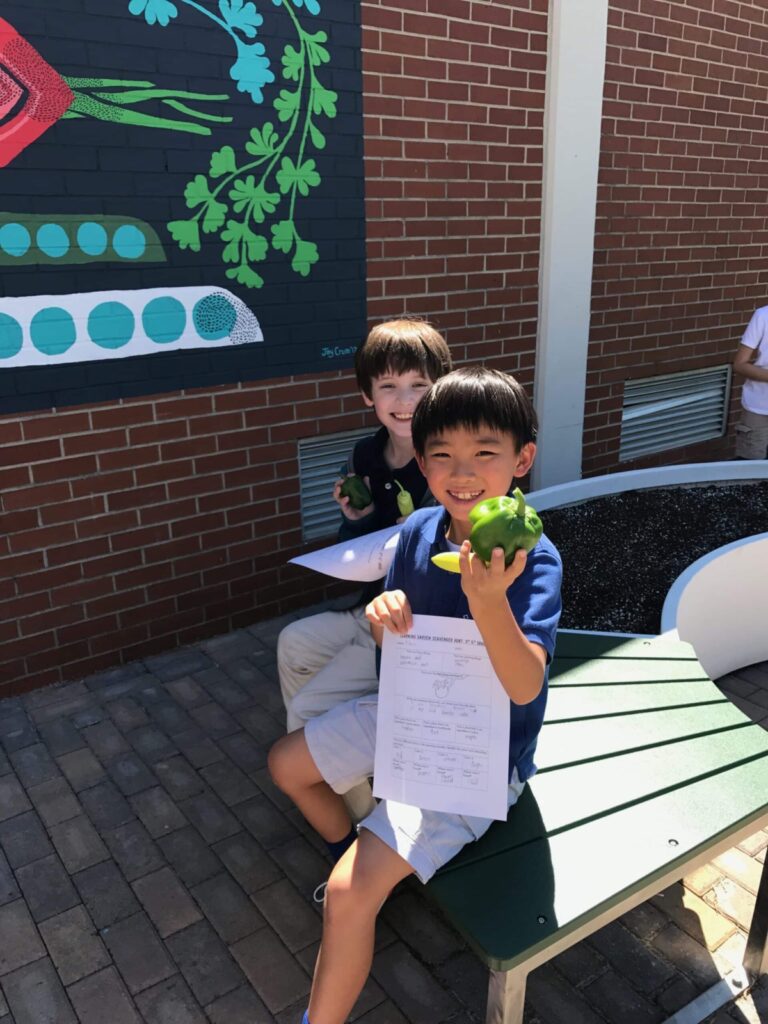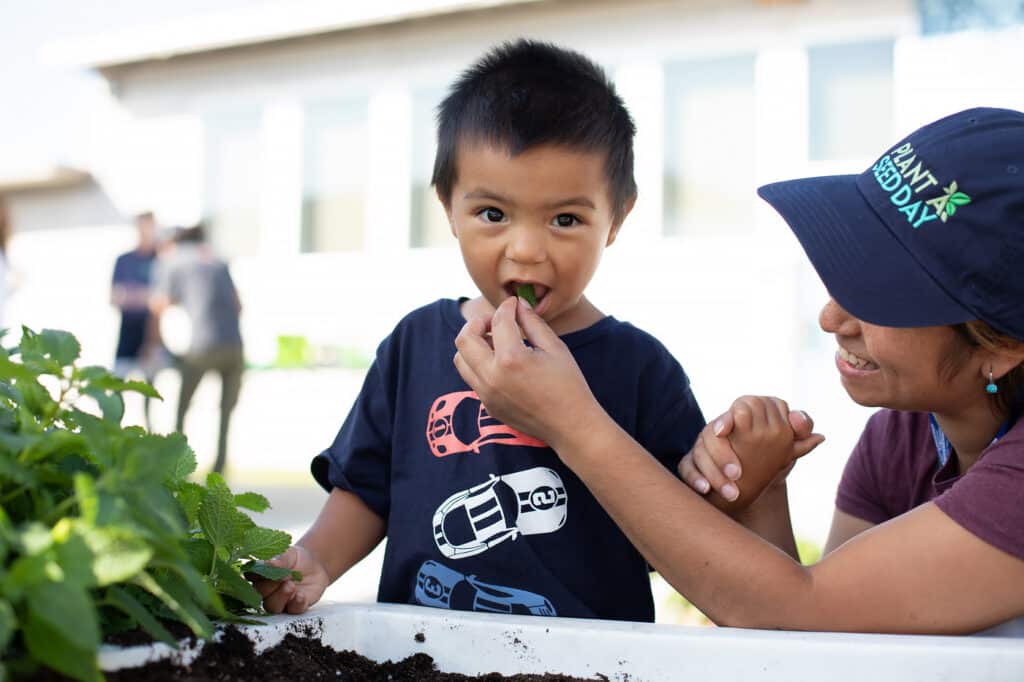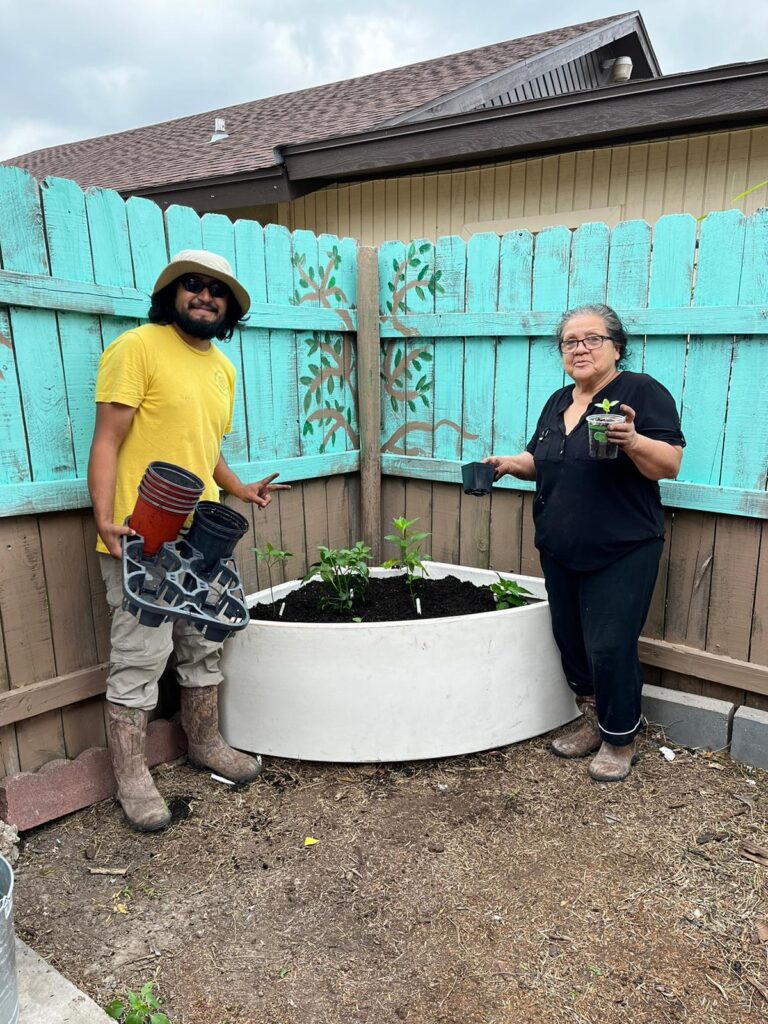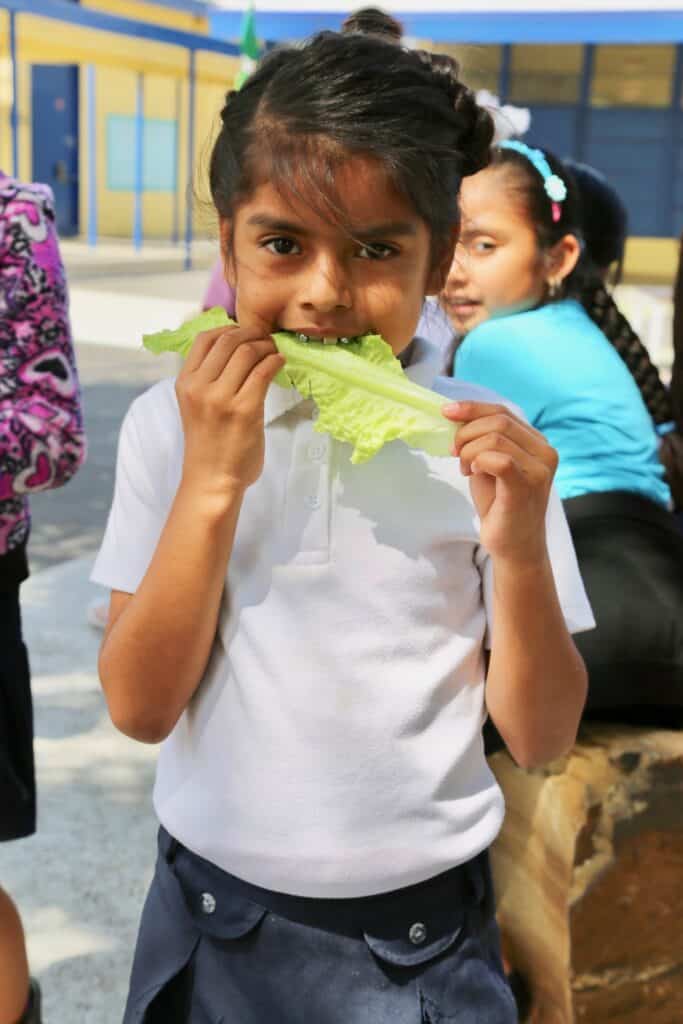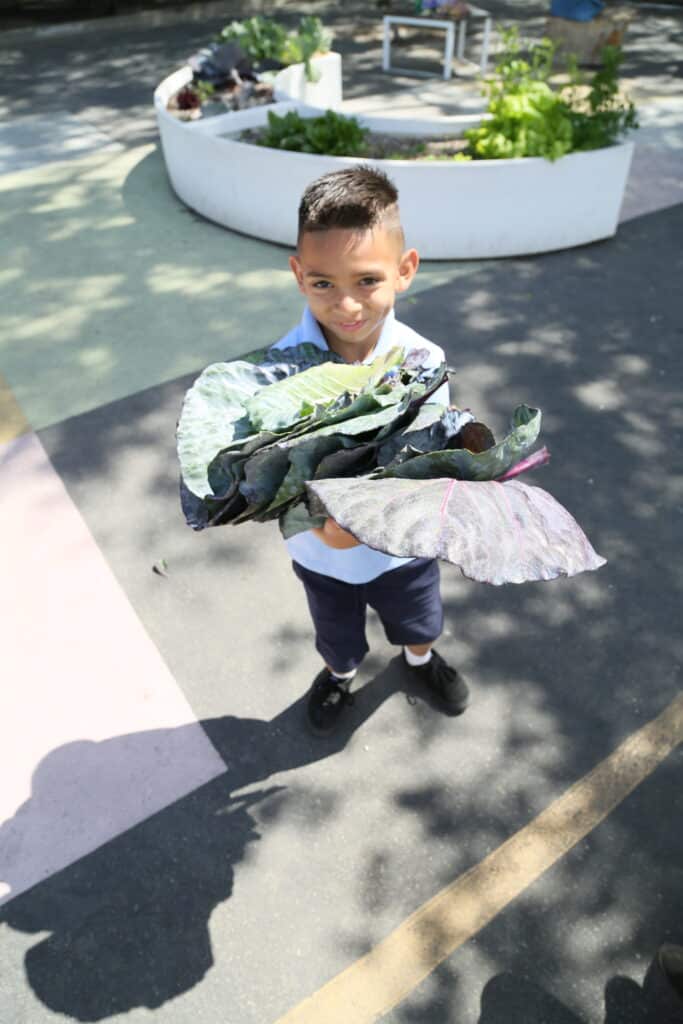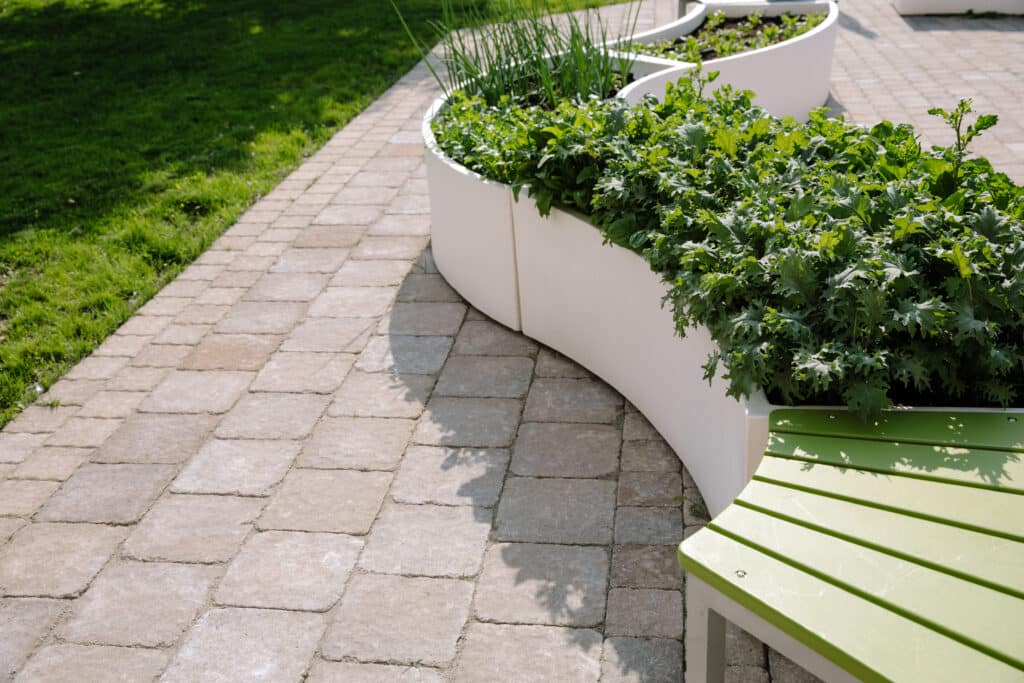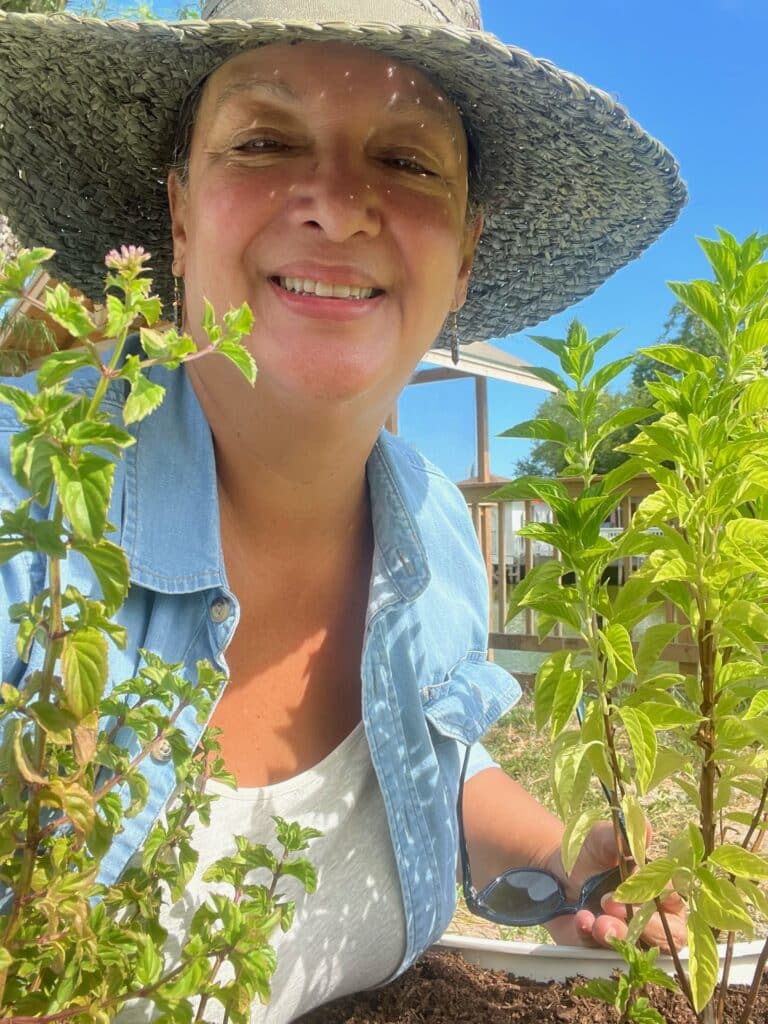Why food?
Why we do what we do.
Why we do what we do.


It’s the result of choices like convenience over quality, but it’s also the result of the individual and community level knowledge and norms that influence our food choices. These are the things we learn from family and friends, the barrage of food marketing around us, and even the very places where we get our food!
View our educational resourcesThere is still a growing disparity in access to fresh produce and healthy food outlets… These inequities are why it is so important to foster home-based and community-driven efforts to curb food insecurity.—Theo Davies, The Works Our Partners
As I started learning it and understanding the connections that gardening has with life and freedom and sustainability and being conscious and mindful of your input and your output…like why haven’t I been doing this?—Ms. Danielle Walker, Craigmont High School, Memphis View case studies
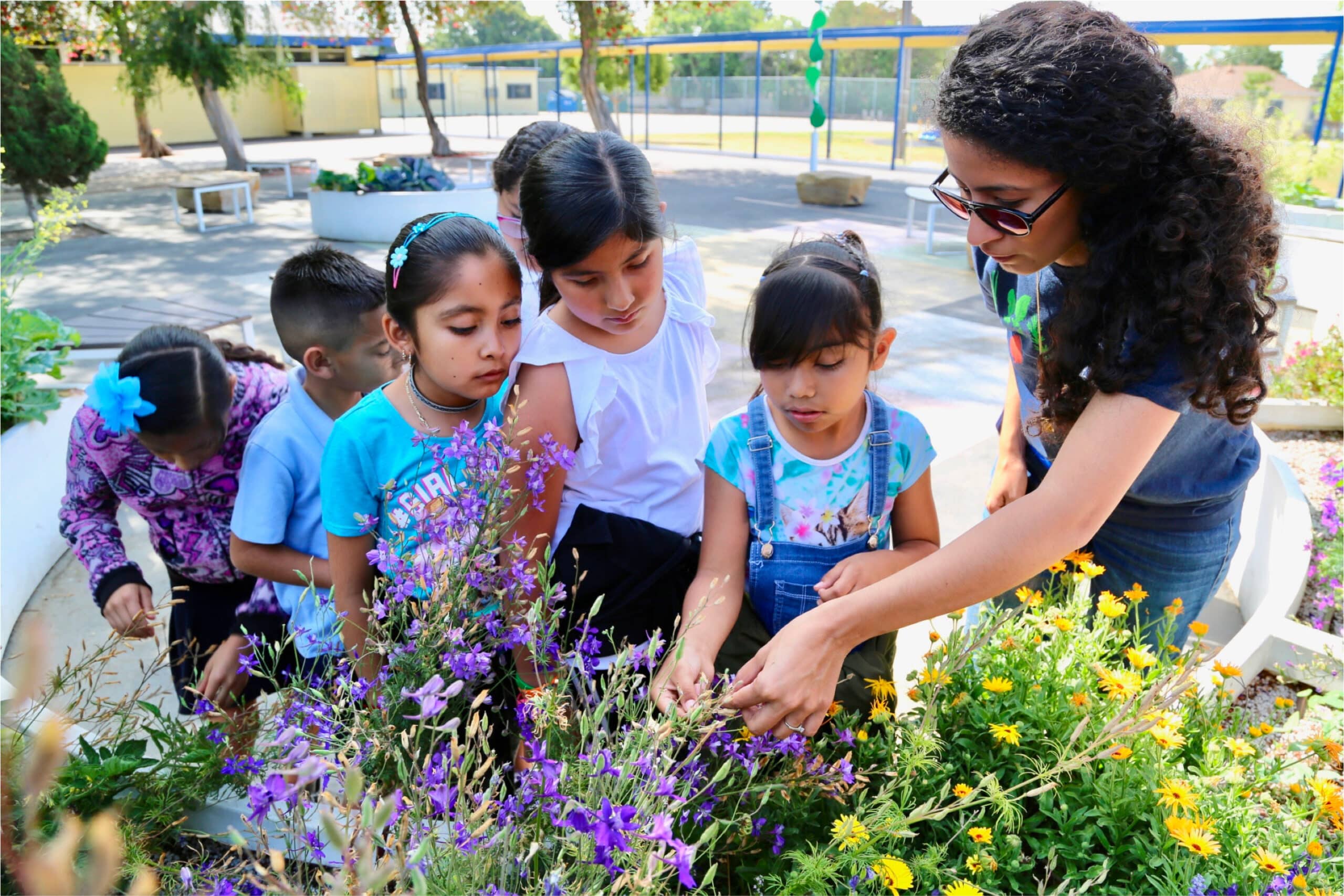
improves nutrition security
benefits our mental health
connects us to nature and opens our eyes to the effects of climate change
positively impacts economic mobility
together builds community
Adding stable sources of fresh fruits and vegetables improves our nutrition, reducing the risk of chronic disease. Children who participate in gardening are twice as likely to meet the recommendation for fruit and vegetable consumption!
Students reported that spending time working in a garden gives time to reflect, feel centered, and let go of stress. Studies have further demonstrated that spending time in the garden reduces stress, builds self-reliance, and increases empathy and reverence for all life.
A study found that 62% of home gardeners felt their garden fostered a personal connection to nature. Furthermore, community gardens are affordable and efficient ways to bring nature back to cities, providing habitat for flora and fauna, supporting urban biodiversity, and even contributing to flood prevention by filtering and storing rainwater!
Growing food has tremendous economic benefit to a household, with an average cost savings of $92 a month! A mere $70 investment in gardening can have a return of upwards of $600. That’s an increase of more than 750%!
It offers young people the opportunity to develop skills, spend quality time with adults like their parents and teachers, and to contribute something valuable to their families and local community. Community-building is not the most obvious outcome of a gardening project, but has been found to be among the most significant and long-lasting.
As evidenced by Costa et al, “By successfully improving nutrition, community gardens not only contribute to reducing the risk of chronic diseases, such as cardiovascular disease and some cancers, but are also highly relevant to reduce inequalities in urban food systems.”
Lampert, T., Costa, J., Santos, O., Sousa, J., Ribeiro, T., & Freire, E. (2021). Evidence on the contribution of community gardens to promote physical and mental health and well-being of non-institutionalized individuals: A systematic review. PLoS ONE, 16(8), 1–19.
Further, van Lier et al states that “Students who participate in gardening are twice as likely to meet the recommendation for fruit and vegetable consumption compared to students who do not have a garden Likewise, students who participate in gardening and students who have a garden but do not participate were significantly more likely to always have fruits and vegetables available at home compared to students without a garden.”
van Lier, L. E., Utter, J., Denny, S., Lucassen, M., Dyson, B., & Clark, T. (2017). Home gardening and the health and well-being of adolescents. Health Promotion Practice, 18(1), 34–43.
Van Lier et al highlights that, “Adolescents commented that working in the garden gave them time to reflect, feel centered, and let go of school stress. Moreover, almost all of the youth indicated that their capacity to pay attention improved and that they were better able to do their schoolwork after gardening.”
van Lier, L. E., Utter, J., Denny, S., Lucassen, M., Dyson, B., & Clark, T. (2017). Home gardening and the health and well-being of adolescents. Health Promotion Practice, 18(1), 34–43.
In addition, “Research has shown that time in the garden reduces stress and builds empathy, self-reliance and reverence for all life.”
Fuchs, J. (2022). Environmental Education and Gardening with Children. Exchange (19460406), 264, 78–82.
Evidence on the contribution of community gardens to promote physical and mental health and well-being of non-institutionalized individuals: A systematic review. PLoS ONE, 16(8), 1–19.
In a study conducted by Raymond et al, 62% of home gardeners described that their garden fostered a connection to nature.
Raymond, C. M., Diduck, A. P., Buijs, A., Boerchers, M., & Moquin, R. (2019). Exploring the co-benefits (and costs) of home gardening for biodiversity conservation. Local Environment, 24(3), 258–273.
Additionally, Lampert et al found that “Community gardens are an affordable and efficient…way to bring nature back to cities and potentially contribute to the provision of ecosystem services. As green spaces, community gardens serve as a habitat for fauna and flora, being considered a potential reservoir of urban biodiversity. They also contribute to increasing the proportion of permeable soil surface, filtering and storing water from the rain, thus contributing to flood prevention.”
Lampert, T., Costa, J., Santos, O., Sousa, J., Ribeiro, T., & Freire, E. (2021).
Numerous studies on the benefits of gardening show positive economic and environmental outcomes from well-supported gardens.
For example, Diekmann et al found that the “average cost savings reported by home gardeners was $92 per month...”
In addition, according to recently released survey results from the National Gardening Association (NGA), a $70 investment in home food gardening can yield, on average, a $600 return on the investment.
Additional Links
Van Lier et al found that “…gardening (in any location) offers young people the opportunity to develop skills, spend quality time with adults (e.g., parents, teachers), and contribute something valuable to their families or local community.”
van Lier, L. E., Utter, J., Denny, S., Lucassen, M., Dyson, B., & Clark, T. (2017). Home gardening and the health and well-being of adolescents. Health Promotion Practice, 18(1), 34–43.
Furthermore, a study out of Ontario Institute for Studies in Education at the University of Toronto (OISE/UT) found that the implementation of a garden space provided even more benefits than initially anticipated. Researchers said, “Community building was not necessarily an intention of OISE/UT’s learning garden project but became a significant outcome of the process. In fact, it may be the most long-lasting dimension of the learning garden.”
Jagger, S., Sperling, E., & Inwood, H. (2016). What’s Growing on Here? Garden-Based Pedagogy in a Concrete Jungle. Environmental Education Research, 22(2), 271–287.
Everyone should be growing food. In our gardens and urban farms, we see the growth evolving both in people and plants. Empowerment comes from knowing where your food comes from and understanding the benefits for your health. I strive to share this knowledge for the future of our community and this planet.—Vero Dimas, Brownsville Wellness Coalition Learn more about our partners

so…
why food?
